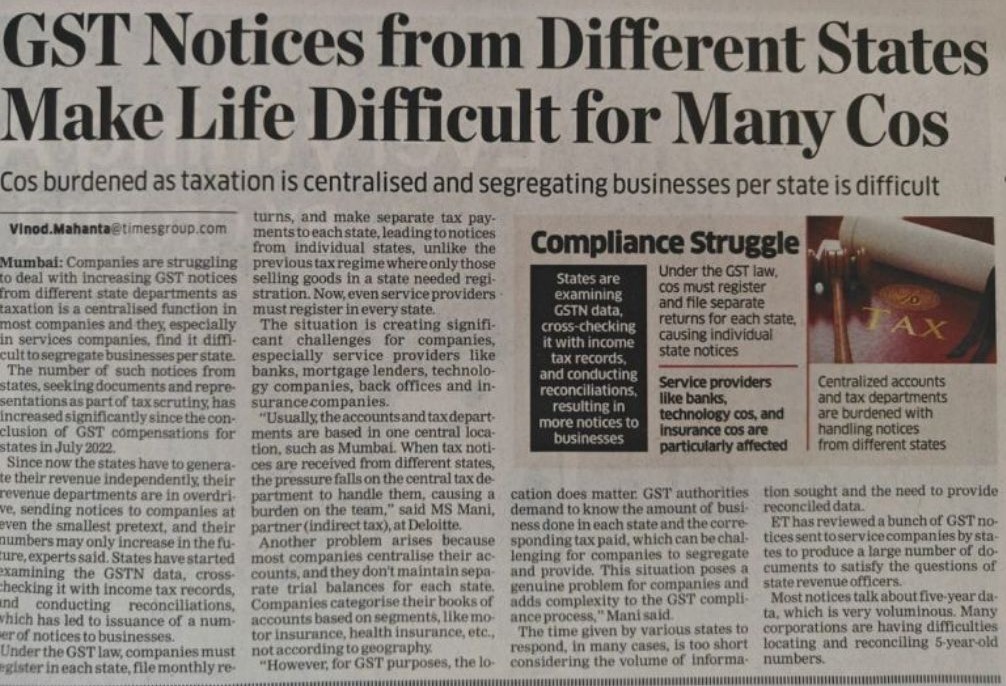Don't have an account?
Login to EaseMyDeal

2023-07-30
425
The introduction of the Goods and Services Tax (GST) in India was a significant step towards creating a unified tax structure. However, as the system matured, it brought along new challenges for businesses, especially those operating in the service sector. One of the major hurdles faced by companies is the rising number of GST notices received from different state departments. This blog will delve into the reasons behind this issue and explore its impact on businesses. We will also discuss the challenges faced by service-based entities and the strain it puts on centralized tax departments.
Centralized Taxation and Difficulty in Segregating Businesses per State
In many companies, taxation is managed centrally, which works efficiently when dealing with the previous tax regimes. However, with the introduction of GST, businesses are required to register, file returns, and make separate tax payments in each state they operate. This poses a challenge for companies, particularly service-based ones, as they find it hard to segregate their businesses per state. As a result, they face difficulties in responding to GST notices issued by individual states.
Increasing Frequency of GST Notices
The frequency of GST notices from different state departments has seen a significant rise following the completion of GST compensations for states in July 2022. With the need to create their own revenue, state revenue departments have become proactive in scrutinizing businesses' GSTN data, cross-referencing it with income tax records, and conducting reconciliations. This has led to a surge in the number of notices being issued to enterprises.
Obligatory Registration for Service Providers in Every State
Under the GST law, service providers are required to register in each state where they operate, file monthly returns, and pay taxes separately to each state. Unlike the earlier tax regime, where only those selling goods needed state-wise registration, the new tax system demands registration for service providers in every state. This mandate further exacerbates the burden of GST notices on service-based companies, including banks, mortgage lenders, technology firms, back offices, and insurance companies.
Strain on Central Tax Departments
For many businesses, their accounting and tax divisions are centralized in major cities like Mumbai. Consequently, when they receive GST notices from multiple states, the central tax department faces immense pressure to handle and respond to these notices effectively. The strain on the staff and resources of these centralized departments can lead to delays in addressing the notices and complying with state-specific requirements.
Conclusion:
The growing number of GST notices from different state departments has become a pressing concern for businesses, particularly those operating in the service sector. The centralized taxation approach adopted by many companies is now struggling to cope with the complexity of the GST regime. With states actively seeking additional revenue, they have intensified their scrutiny of businesses, resulting in a higher frequency of notices being issued. Service-based companies face significant challenges in differentiating businesses per state and are burdened with the obligation to register in each state they operate.
To tackle this issue, businesses may need to reevaluate their taxation strategies and consider establishing tax divisions in each state they operate. Alternatively, the government could explore streamlining the GST process to make it more business-friendly and reduce the burden of multiple notices on companies. By addressing these challenges, both the government and businesses can work towards ensuring a smoother and more efficient GST compliance process, benefiting the overall economy in the long run.

Write A Comment